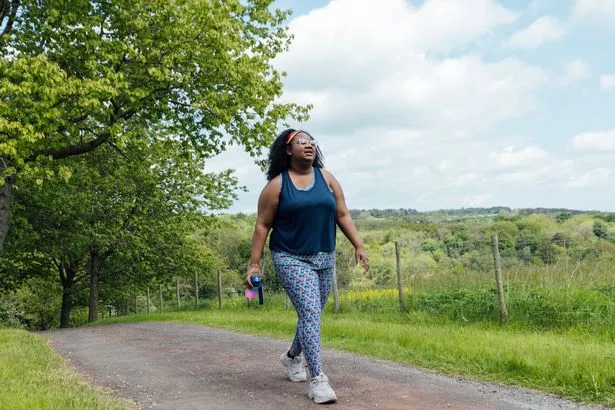A major study has found that a low-cost, low-impact activity accessible to people of all fitness levels could boost lifespan
17:53, 29 Jul 2025Updated 18:19, 29 Jul 2025
 Even those who exercise regularly or take longer walks can benefit from picking one simple change(Image: Getty Images)
Even those who exercise regularly or take longer walks can benefit from picking one simple change(Image: Getty Images)
Scientists say this exercise hack that won’t just save you time, it could save your life.
Picking up the pace of your walk for as little as 15 minutes per day could slash your risk of an early death, new research has found.
A major study which looked at nearly 80,000 participants, found that brisk walking was linked to a 20 per cent reduction in all-cause mortality.
While regular walking is widely recognised for its benefits to overall health and well-being, just 15-minutes of fast walking has shown to be better than slow walking for more than three hours a day.
The study looked at predominantly low-income and Black individuals across 12 southeastern US states. The researchers concluded that fast walking is a convenient, low-cost and low-impact activity suitable for people of all ages and fitness levels.
“Our research has shown that fast walking as little as 15 minutes a day was associated with a nearly 20% reduction in total mortality, while a smaller reduction in mortality was found in association with more than three hours of daily slow walking,” said lead researcher Wei Zheng, at Vanderbilt University.
The benefits of fast walking persisted even after adjusting for other lifestyle factors, including diet, smoking and alcohol use, Zheng said.
 Walking fast could help slash risk of early death by 20 per cent(Image: Getty Images)
Walking fast could help slash risk of early death by 20 per cent(Image: Getty Images)
The study’s participants reported their average daily minutes of ‘slow’ walking, such as moving around, walking at work, walking the dog, or engaging in light exercise, and ‘fast’ walking, such as climbing stairs, brisk walking, or exercising.
Their health outcomes were then tracked over a follow-up period of around 16.7 years.
The researchers found that the protective effect of fast walking covered all causes of death but was most pronounced for cardiovascular diseases.
While fast walking was linked to a 20 per cent reduction in the risk of early death, slow walking for more than three hours a day was linked to just a four per cent reduction, suggesting intensity of walking matters more than duration.
The study concluded the benefits of fast walking related to cardiovascular health are that it boosts heart efficiency, manages cardiovascular risk factors like reducing obesity and related risks like high blood pressure, and that it is low-impact and suitable for all fitness levels.
“Public health campaigns and community-based programs can emphasise the importance and availability of fast walking to improve health outcomes, providing resources and support to facilitate increased fast walking within all communities,” said lead author of the article Lili Liu, at Vanderbilt University.
Liu added: “Furthermore, the findings of the reduced mortality associated with fast walking pace were supported by previous studies conducted in middle- and upper-middle-income populations.
“Individuals should strive to incorporate more intense physical activity into their routines, such as brisk walking or other forms of aerobic exercise.”
The study was published in the American Journal of Preventive Medicine.

